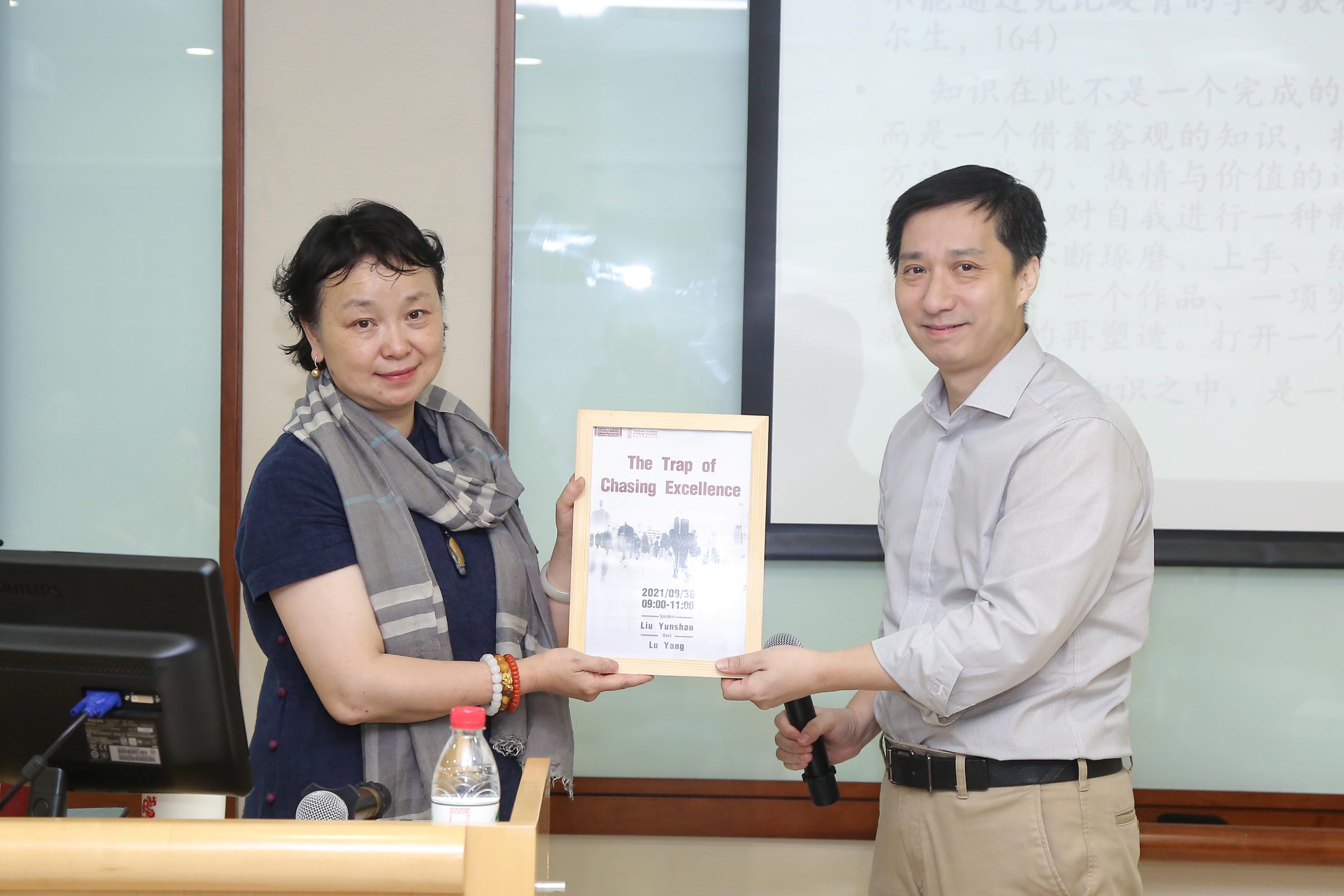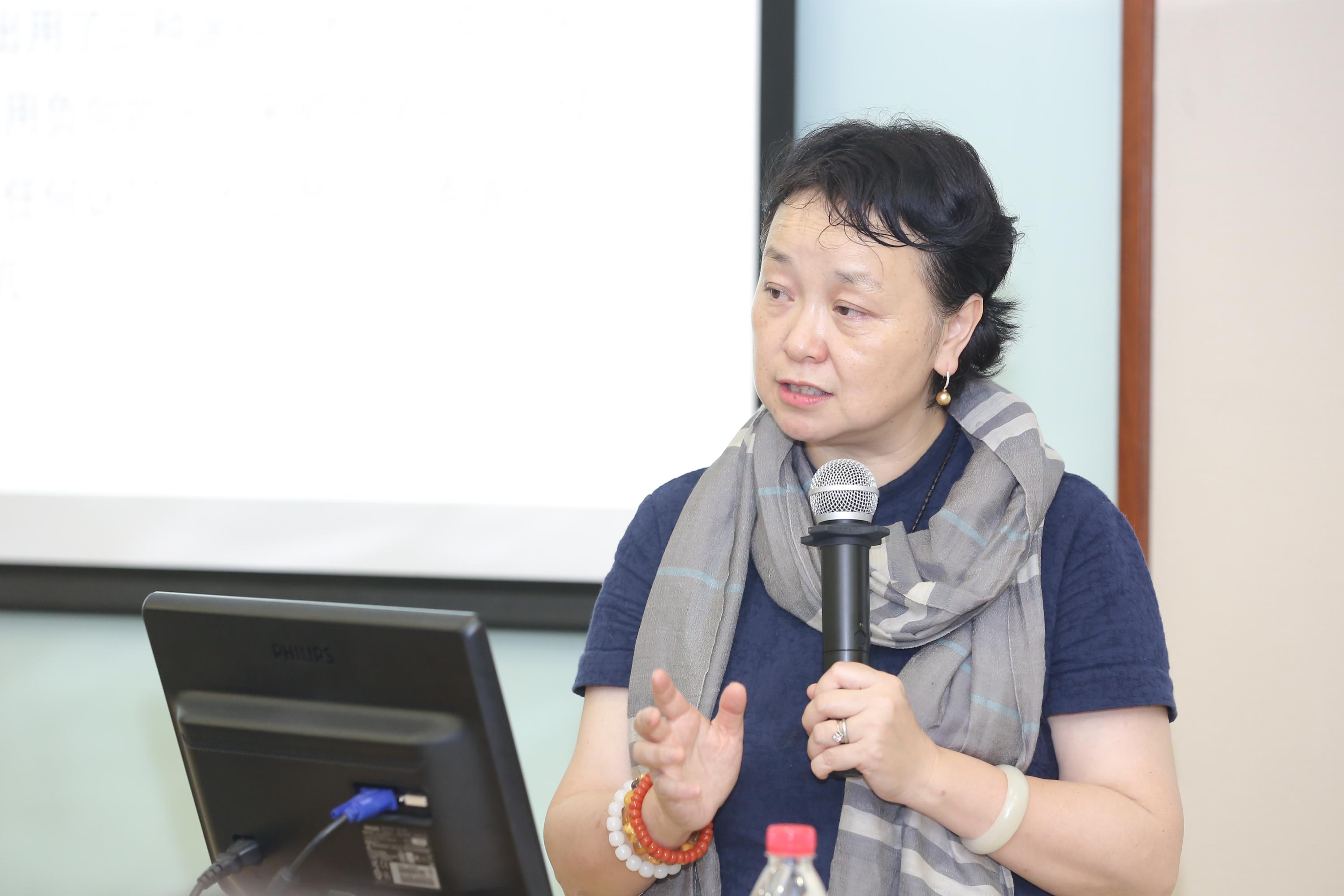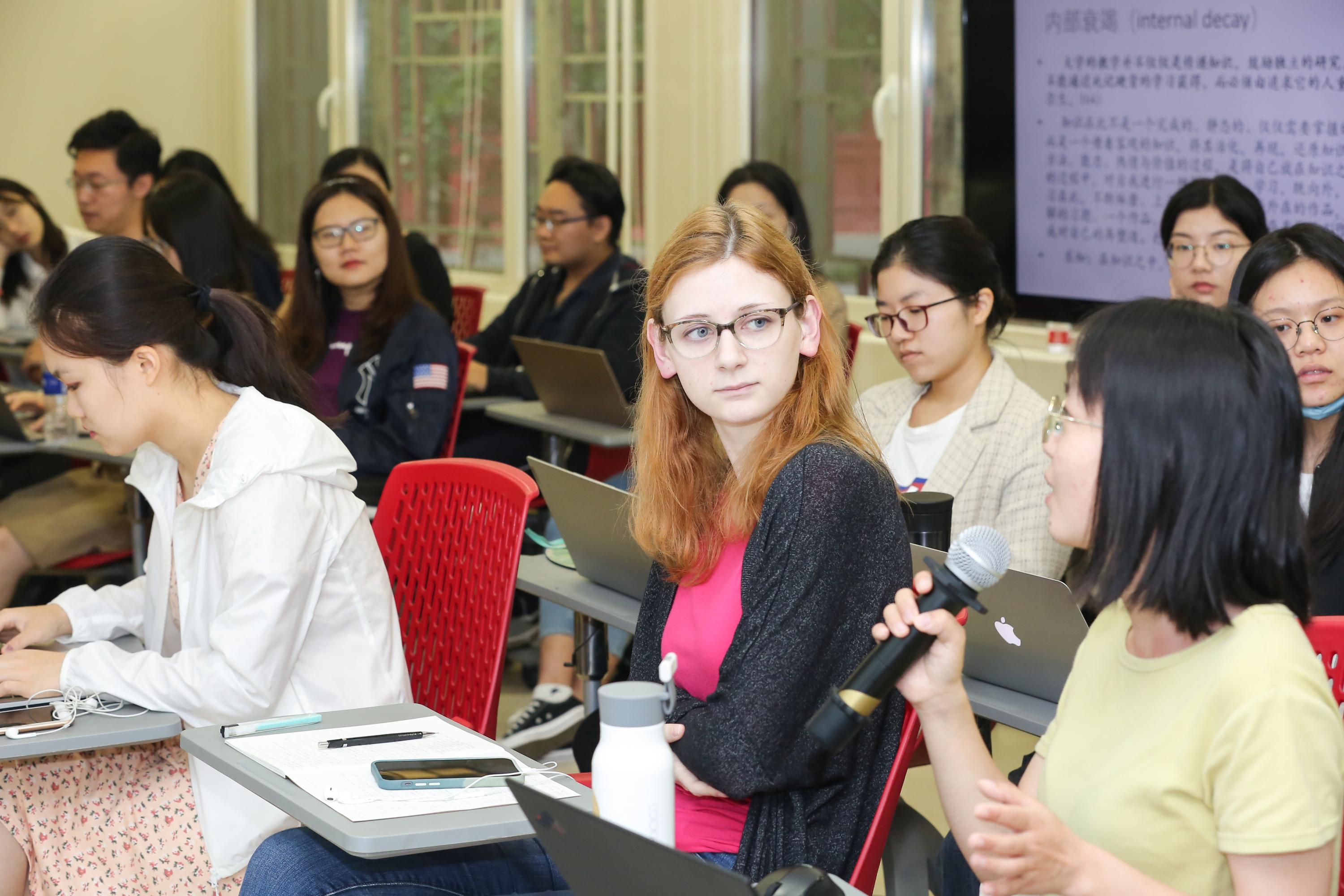On the morning of September 30, Professor Liu Yunshan, Associate Dean of the PKU Graduate School of Education, gave a lecture titled “The Trap of Chasing Excellence” in Jingyuan Courtyard 4, sharing her insights on involution and anxiety in China’s education and outlining the essentials of education. Her lecture started the 2021–22 academic year’s Topics in China Studies Lecture Series and was chaired by Pro. Lu Yang, Director of Graduate Studies of the Yenching Academy.
Prof. Liu sat in an interview after the lecture. She said the term “involution” unexpectedly surfaced in the academic world, gaining prominence among university students in China and becoming a buzzword in the country.
Students in top-notch universities in China fall victim to higher GPA pursuits. While pursuing a higher GPA (and academic excellence) is not bad, the worry is when students become entrenched in pointless competitions, astronomically raising their stress and anxiety levels. In this vein, we need to watch and think about their study, mental health, and future. Prof. Liu added that involution was never exclusive for university students. The phenomenon also reflects the pressure on all youth in China today, experiencing the unspeakable suffering.
Prof. Liu reiterated the age-old belief in China: “education is a life-changing means,” adding that Chinese culture stresses life-long efforts for success. Nonetheless, she noted that efforts in learning have changed in recent years with parents’ increased involvement in education, after-school tutorials, and inequitable access to educational resources, hitting our traditional ideas on education hard. The “double reduction” policy aims to address these issues and redirect education and schooling to the original track. Accordingly, she remarked that good education must be universally accessible; it shouldn’t be costly or polluted by vying.
At the end of the interview, Prof. Liu urged our Yenching Scholars not to see only the racetrack to success or pile up metrics just to show off. That leads to nowhere but to dry oneself up.She encouraged self-searching and a focus on the inner world, and asked students to explore the relations between the self, others, and the world by utilizing PKU’s resources.

On the Lecture
Prof. Liu began her lecture with several questions: What is the true purpose of chasing excellence? What does it mean to a student to study in a top-notch university? What are the personal qualities, selection systems, and social structures that help in competition? What qualities do successful students have? What have such qualities done for the students, and what will they do in the future? Can students go with what top-notch universities require of them? Or are there conflicts? If so, what can students do to adapt themselves to new conditions?
According to her, in the 1980s, China worked hard to catch up with and learn from the West’s education sector. However, the Western world was already facing emerging changes in its education system at the time. Education was growing into a “lost paradise” as it declined from being exclusive to the elite to being accessible to the mass. Once, everyone believed in success nurtured by economic growth, but it was no longer an “automatic upward escalator” for all.
Associate Dean Liu then turned to involution in China’s education. She argued that young people in China now seem to be infected with fatiguing aspirations. They are afraid of failure on the way to success they desire; they are trapped, manipulated, and depleted in competition, which raises anxiety about their educational attainments. She noted that society expects too much from students, driving them into excessive and sometimes unrealistic academic pursuits where students have to helplessly devour a field’s unlimited knowledge.
There are enormous institutional contradictions. While secondary and tertiary education calls for innovation, elementary education strives to be fair and balanced. Burden reduction measures did not bring children a happy childhood as expected. Instead, the situation deteriorated: low-cost public schools and expensive private institutions of learning run side-by-side on two tracks; parents grow more involved in education, resulting in parentalism; and the college entrance examination distorted from a system of selection to a way of stratification and further to a must-have in life.
Furthermore, Prof. Liu remarked that once in the whirlpool of competition, the students who want to stand out must gain the edge by acquiring fast knowledge in after-school tutoring classes, reducing education to the preparation for competition. Those who aim to be outstanding often rarely take risks in their studies. They only follow paths perceived to guarantee success. Consequently, trailing study takes the upper hand in a race to the bottom. Prof. Liu observed that this situation makes students lose the drive to engage in repeated practices since studying is labor pressed ahead by the external force rather than an immersive process. Similarly, we cannot expect insights or savvy from students, she added.
The lecture was a good combination of theoretical analysis and case study. Prof. Liu stressed that teaching and learning must be like a living organism – something alive, consistently evolving to a better state and adjusting to accommodate tough situations. She called for self-exploration, spiritual freedom, and an appetite for knowledge. The professor asked students to slow down and immerse themselves in their studies, staying alert to challenges.

Q&A
Q: You talked about dagongren or laborers and interpreted da as a verb, “to beat.” To me, the term dagongren is more like a self-mockery used by the new middle class, such as employees in tech giants and financial institutions. Perhaps, since the term is in frequent use, it is no longer a self-mockery. So why did you still interpret da as “to beat”?
A: Dagongren used to refer to blue-collar jobs in a factory, but the meaning is being used to call employees in financial and technological sectors. Da or “to beat” indicates a lack of intrinsic importance of a job; that is, a person seems to be pulled into the capitalistic chain, no more than a component. But one must feel alienated from a job that is meaningless to them and has to act to be active for the work. The person must show how passionate they are about the job, despite the disinterest. There is no connection between the person and the job, except an external one like income. In this sense, an employee is “beaten” by the job.
Q: I think the trap of chasing excellence can be a cycle. That is, so-called outstanding children will someday be excellence-chasing parents. With all the harm that may exist, what should we do to break the trap?
A: There are problems in the chase. And it hurts many. The hurt and damage are institutionalized, I should say. But individuals do benefit from the process of chasing excellence, in one or two stages, at least. However, this feeling of superiority cannot last since involution is escalating into a social issue that impacts several generations. We must find a way to slow down, or rather, immerse ourselves in our studies while keeping an eye out for needless competition capable of increasing our anxiety and deteriorating our mental health. The entire discourse here is about developing the inner world of our young people. Education must not be a playground for grabbing quick money. We need to redefine education and create a favorable place for those willing and able to take a pause and reassess situations and facts. We need to address numerous complicated issues such as how to select students, how to “fuel up” and “cool down” in education, and how to find a balance between guaranteeing equal access to educational resources and giving the talents full opportunities. We must get down to every single detail.

